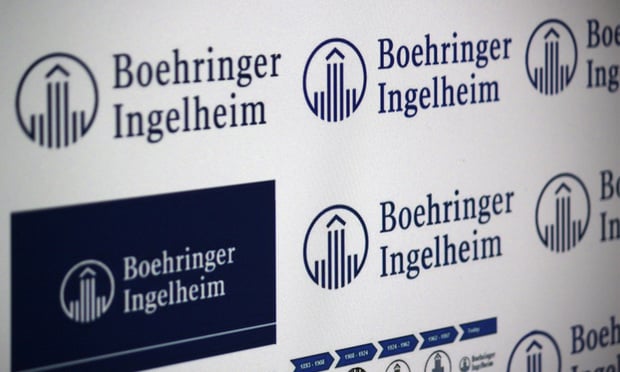When it comes to millennials, suffice it to say that they arethe most complicated generation. They are the largest generation intoday's workforce, yet they're unlike any of the generations thatpreceded them. Employers and brokers alike are trying to figurethem out. What makes them tick at work? What motivates them? Whatbenefits will attract them to a job and keep them there?
|Millennials are stereotyped in many ways — such as, they aretied to their smartphones; selfie-obsessed; job-hoppers;digitally-addicted; believe they are entitled and much more. Torecruit them, retain them, and provide benefits that are meaningfulto them, employers and brokers need to understand them and whatmotivates them, and then address their differences.
|So to set the record straight on millennials, let's engage inthe classic party game of Truth or Dare, which is a great way tolearn more about people. In this case, let's learn more aboutmillennials.
|Truth
About their job:
They aren't job-hopping any faster than Generation X did.According to the Pew Research Center, millennials are just aslikely to stick with their employers as their older counterparts inGeneration X were when they were young adults. One factor that maybe contributing to millennials staying with employers longer istheir relatively high levels of education.
Millennials strive to accomplish more than just their day jobs.They prefer flexible work hours so that they can utilize their timethe way they want. Millennials want to make a difference, but theyalso want a life.
About how to communicate:
Millennials prefer to communicate through platforms such asemail, Instant Messaging, blogs and text messages, rather than onthe phone or face to face. Social media and videos are tops ontheir list as well.
About their finances:
Millennials have more loans and carry fewer credit cards thanthe generations before them, according to FoxNews.com.
According to PwC, 57 percent of millennials are stressed abouttheir finances. And as a result, a Bank of America/Merrill Lynchstudy reveals that millennials spend 3-5 hours per week at workfocused on their personal financial matters.
Yet, 48 percent of millennials are optimistic about theirfinancial future and 92 percent of millennials would participate ina financial education program provided by their employer, accordingto a Bank of America/Merrill Lynch study.
About benefits:
Millennials expect a broader range of health care services thanthey are currently offered, according to an Oliver Wyman report.Many of the services millennials are interested in aretechnology-related, such as an on-camera visit with a doctor or anapp that enables a consultation with specialists. They areinterested in health and wellness services.
They want to make their own decisions about their benefits.Choice is important to millennials, and it's almost a mandate giventhat they are the most diverse generation in the workforce today.Millennials want options and then they can pick the benefits thatare important to them.
According to Gallup, they want benefits and perks that directlyimpact their lives and the lives of their family members. They areplanning families or already have young children at home. So childcare costs and maternity and paternity leave are pressing issuesfor millennials. Additionally, 60 percent say insurance coverageother than health insurance is important.
And don't forget pet insurance for their four-legged familymembers. Millennials are waiting longer to have children than othergenerations, and about two-thirds of millennials are petowners.
Dare
So you didn't know all this about millennials? Then youmust complete this “dare”:
Participation in employee benefit programs is generally loweramong millennials than other workers, according to SHRM. Soemployers and brokers need to “dare” to utilize benefitscommunications methods that appeal to millennials. It's alsoimportant to communicate frequently, not just during openenrollment time.
Tailor communications messages specifically for millennials.Employers and brokers should “dare” to provide information insnackable, bite-size portions. Plus, millennials need more thaninformation — they need to see the value. Provide an explanation orillustration on why it matters — how a particular benefit will helpthem now or in the future.
Millennials have spoken loud and clear that they want choice andwant to choose their own benefits. So employers and brokers must“dare” to provide a variety of voluntary benefits that allowmillennials to select the benefits they want. Benefits likeidentity theft protection, critical illness insurance, student loanrepayment programs, employee purchase programs and pet insuranceappeal to millennials.
Millennials are the current reality in today's workforce. Whatthey accomplish in their jobs determines the success of a business.Employers and brokers who “dare” to understand millennials andstructure benefits programs and communications accordingly will winthe game.
Complete your profile to continue reading and get FREE access to BenefitsPRO, part of your ALM digital membership.
Your access to unlimited BenefitsPRO content isn’t changing.
Once you are an ALM digital member, you’ll receive:
- Critical BenefitsPRO information including cutting edge post-reform success strategies, access to educational webcasts and videos, resources from industry leaders, and informative Newsletters.
- Exclusive discounts on ALM, BenefitsPRO magazine and BenefitsPRO.com events
- Access to other award-winning ALM websites including ThinkAdvisor.com and Law.com
Already have an account? Sign In
© 2024 ALM Global, LLC, All Rights Reserved. Request academic re-use from www.copyright.com. All other uses, submit a request to [email protected]. For more information visit Asset & Logo Licensing.








